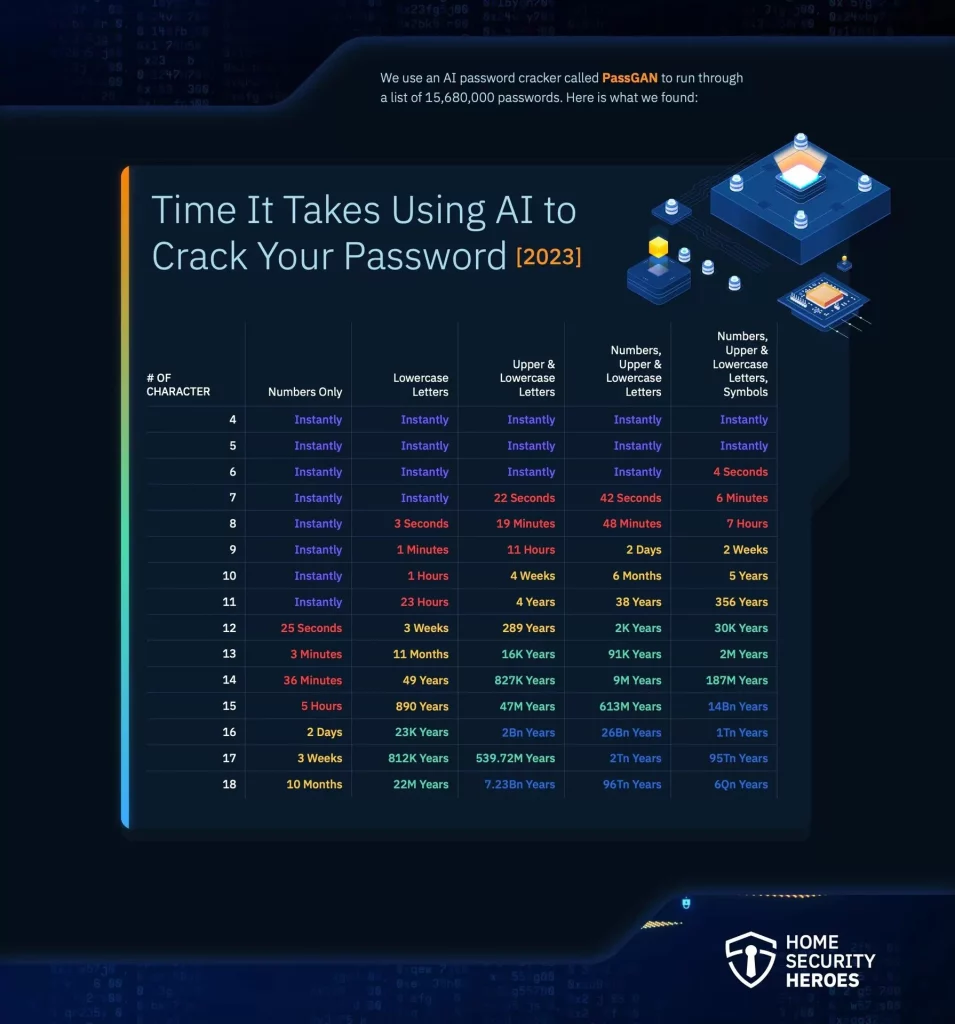Artificial intelligence has undoubtedly transformed our lives in numerous ways, providing us with innovative solutions like Bing Chat and Bard. However, with great power comes great responsibility, and there’s a dark side to this technology that we must be aware of. One concerning aspect of AI is its potential misuse in password cracking. A new study by cybersecurity firm Home Security Heroes highlights the alarming speed at which AI can crack passwords.
New study shows how scary fast today’s AI is at cracking passwords
Home Security Heroes recently published a study that delves into the world of AI-powered password cracking, focusing on a tool called PassGAN (password generative adversarial network). The researchers employed PassGAN to analyze a list of over 15 million passwords, revealing some startling findings.

According to the study, 51% of common passwords can be cracked in under a minute, 65% in under an hour, 71% in under a day, and 81% in under a month. The research showed that the majority of six-character passwords and under were cracked almost instantly. The study suggests that passwords with at least 18 characters are considered safe against tools like PassGAN, with a minimum of ten months required to crack an 18-character password containing only numbers.
However, this level of security may not last long, as AI technology continues to advance. To protect your accounts from such password-cracking tools, Home Security Heroes recommends using passwords with a minimum of 15 characters, containing at least two letters, numbers, and symbols. Avoiding predictable patterns (e.g., “1234”) and regularly changing your passwords is crucial. Additionally, refrain from using the same password across multiple accounts.
While maintaining strong passwords may seem burdensome, it’s a small price to pay for safeguarding your data. To help you remember complex passwords, consider using a password manager. As AI technology progresses, it’s essential to stay one step ahead of potential threats and ensure the security of your online accounts.
RELATED:
- Best Smart Light Bulbs 2023
- Alibaba launches its ChatGPT rival ‘Tongyi Qianwen’ for enterprise testing
- Xiaomi needs to fix its smartphone portfolio in India
- ChatGPT Reportedly Blocks Large Number of Asian Accounts, Causes Panic Among Users
- Microsoft Fixes 5-Year-Old Windows Defender Bug Affecting Firefox’s Performance
(via)






